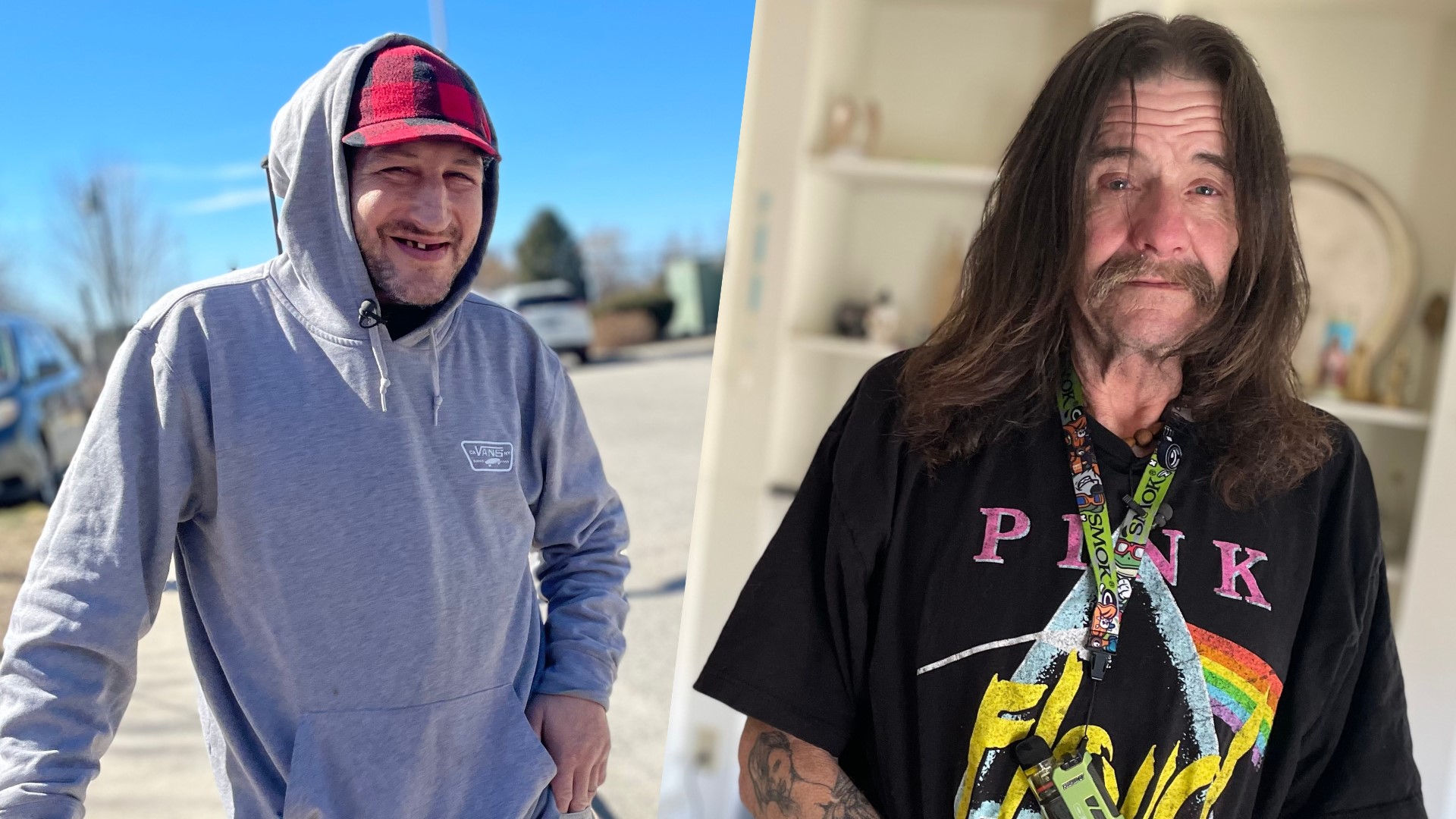PORTLAND, Maine — Arthur "Artie" Hitchcock was homeless for 38 years—but this past month, he was able to bring blankets and other items with him to his new apartment.
His story, he wants to be clear, does not end at this new apartment. His life was full of trials and hardship as he navigated fickle housing situations and harsh Maine winters.
"It sucked but I was a survivor... I am a survivor, and I survived," Hitchcock said.
He has a couch, table, and two crates covered with blankets to make his space more comfortable; he has a small plant in a large pot; he has a Red Sox jacket he found outside hanging on the door, freshly cleaned after he collected it from the street.
Hitchcock is building his new life. One that comes with a one-bedroom apartment and a deeper sense of identity and security.
"I was in the middle and feeling like giving up, I was giving up on a lot of things," Hitchcock said.
His story is successful because of a combination of factors, his case worker said: his relentless attitude, Preble Street's hard work, and luck.
He had a housing voucher, which many unhoused people may not use for months, or even years. Some unhoused people have told NEWS CENTER Maine they've found landlords who will not rent to those who have a voucher.
He was also working with Preble Street's Rapid Rehousing Program, which accelerated his approach to finding an apartment.
Preble Street caseworkers often find the complicated journey of finding a homeless person housing successful, in sometimes unexpected places, such as the nonprofit's Recuperative Care Program.
This program intercepts unhoused people who go to the emergency room and helps shelter them for two to six weeks, connecting them to the medications they need. During that process, according to Preble Street's Britt La Shier, someone could become prime to enter a more permanent housing program.
"A lot of people have the idea that once someone is housed, we can say our job is done... really, that's where a lot of the work just begins," La Shier said.
La Shier added the Recuperative Care Program allows people to physically and mentally stabilize and heal, so the eventual transition to an apartment becomes easier.
This is what happened to Kabir Geiger, who tells us he hadn't had housing for 14 years. He suffered from hepatitis B and C, and had a blood infection from an ingrown toenail. He risked amputation, he told us.
Instead of going from the emergency room to the shelter or to the streets, he went to the Recuperative Care Program and stayed more than two months.
"It's so important because it gave me a place to heal," Geiger said. "I feel like I've been given a clean slate and a whole new chance at life, that is how I feel."
Geiger walked through the parking lot on Frederick Street, the same parking lot that was once the site of a massive encampment clearing where Geiger once stayed for a short time.
His new apartment is just feet away from that parking lot.
"I never let them win, you know? I came out through it and it made me all through the better," Geiger said.
For Britt La Shier, she was worried this day would never come.
"You have no idea... when I met Kabir, we all have a list in our head of some people we know may die at an early age just because of the elements they are exposed to, so seeing someone like Kabir get into a place is one of the most incredible stories I've ever heard," La Shier said. "I want to make sure he reaches his other goals... and to get out of that survival mode and just see like what it is to live life, just seeing Kabir and that smile on his face."

